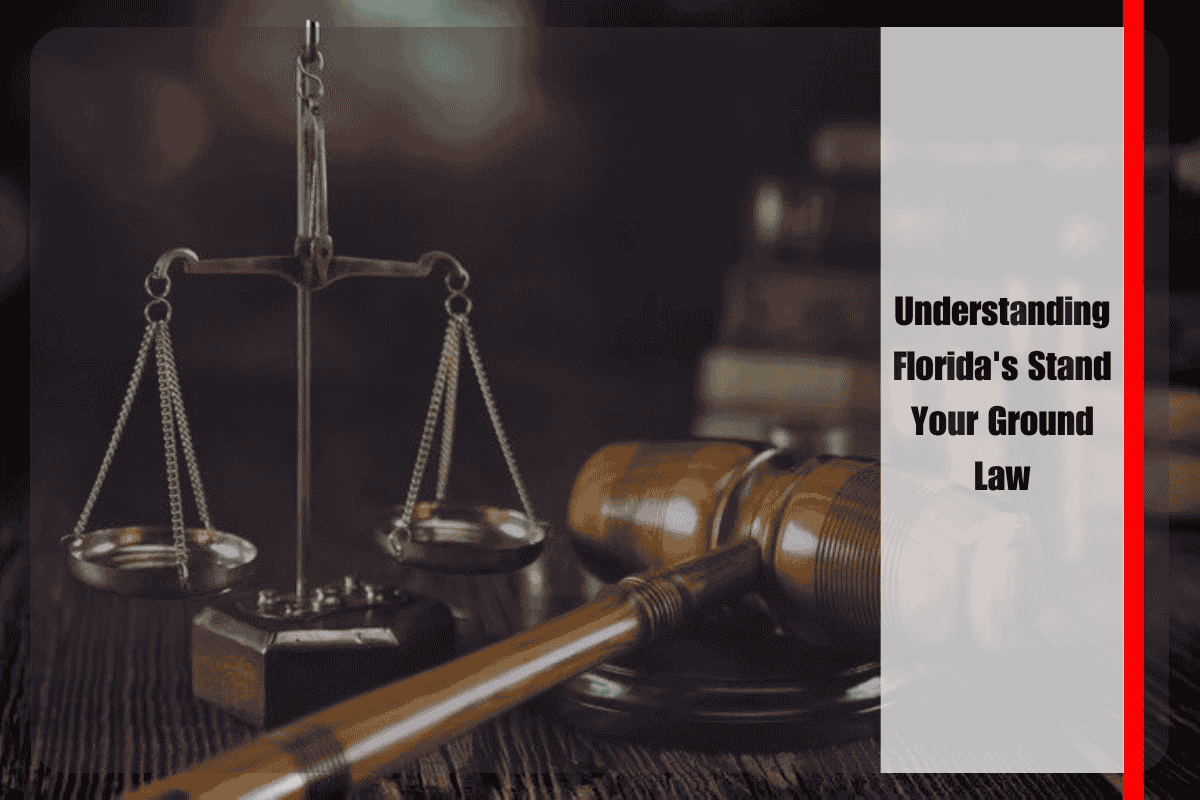Florida’s “Stand Your Ground” law is one of the most talked-about self-defense laws in the United States. It allows individuals to use force, including deadly force, to protect themselves when they feel threatened, without the duty to retreat. This law has sparked debates and discussions on both sides, with many people questioning its impact on public safety and legal outcomes. In this article, we will explain the key elements of Florida’s Stand Your Ground law, how it works, and its implications for residents and visitors.
What Is Florida’s Stand Your Ground Law?
The Stand Your Ground law in Florida was enacted in 2005 and allows a person to defend themselves with force if they believe their life is in danger. Unlike traditional self-defense laws that require individuals to retreat from a threatening situation if possible, Stand Your Ground removes this obligation. This means that if someone feels threatened, they can defend themselves with force without trying to escape the situation first.
The law applies in situations where a person is in a place where they have a legal right to be, such as their home, car, or even a public place. It is important to note that the law permits the use of deadly force only when the individual reasonably believes that such force is necessary to prevent imminent death or great bodily harm.
When Can You Use Stand Your Ground in Florida?
To understand when the Stand Your Ground law applies, there are a few essential conditions to keep in mind. The individual must feel that their life or the life of another person is at risk. The threat must be immediate and serious. If you are in a place where you have the legal right to be, you are not required to retreat from a confrontation before using force. This is one of the key differences between Stand Your Ground laws and traditional self-defense laws. The use of force must be based on a reasonable belief that it is necessary to prevent harm. If the threat is not reasonable or is exaggerated, the law may not apply. The force used must be proportional to the threat. Deadly force can only be used if the threat of death or great bodily harm is imminent.
Examples of Stand Your Ground Situations
While the law is clear in its application, it can be complicated to interpret in certain real-life situations. One example of when the law might apply is in the case of a home invasion. If an intruder breaks into your home and you feel that your life is in danger, you have the right to use force to protect yourself and your family. Another example could be a carjacking attempt. If someone attempts to steal your car or threatens you while you are in your vehicle, you may defend yourself with force, including deadly force, if necessary. In cases involving street confrontations, such as a heated argument or physical altercation in a public place, if someone threatens you with violence, the Stand Your Ground law allows you to defend yourself, even if retreating is possible.
The Legal Process and Immunity
One of the most unique aspects of Florida’s Stand Your Ground law is the provision for legal immunity. If you use force under the protection of Stand Your Ground, you may be granted immunity from prosecution. This means you will not be charged with a crime, such as assault or murder, if the court determines that your actions were justified under the law.
However, this immunity is not automatic. After an incident, the individual who used force can request a pre-trial hearing to determine whether the Stand Your Ground defense applies. If the judge agrees that the use of force was justified, the case will be dismissed, and the person will not face charges. On the other hand, if the judge finds that the law does not apply, the case will proceed to trial.
Controversies and Criticisms
While the law is popular with many who believe it provides necessary protections, it has also faced criticism, especially in cases where it seems to have been used unjustly. One of the most notable and controversial cases was the 2012 shooting death of Trayvon Martin, which brought national attention to Florida’s Stand Your Ground law.
Critics argue that the law can encourage violence and allow individuals to avoid accountability for actions that might have been avoided with de-escalation. There have been concerns that the law disproportionately affects minority communities and may be misused by those who feel threatened by people based on race or other factors.
Supporters of the law, however, argue that it provides important protection to law-abiding citizens who may otherwise be at risk from criminals. They believe that people should have the right to defend themselves if they are under attack and should not be forced to retreat if they are in their own home or in a public space.
Florida’s Stand Your Ground law has become a significant part of the state’s legal landscape. By removing the duty to retreat and allowing individuals to defend themselves with force when they feel threatened, the law provides legal protections to those who might otherwise be at risk. However, it has also sparked debates about its fairness and potential for misuse. Whether you are a Florida resident or just visiting, it’s crucial to understand the law’s provisions and know when it may or may not apply. Staying informed about legal rights and responsibilities can help ensure that you act appropriately in any potentially dangerous situation.
Sources
[1] https://www.thedensonfirm.com/criminal-defense/stand-your-ground-law-in-florida-explained/
[2] https://www.flsenate.gov/Laws/Statutes/2024/776.012
[3] https://daytonadefense.com/blog/self-defense-how-floridas-stand-your-ground-law-works/
[4] https://www.robertmalovelaw.com/library/florida-self-defense-law.cfm
[5] https://www.pallegarlawfirm.com/articles/changes-to-floridas-stand-your-ground-law/












